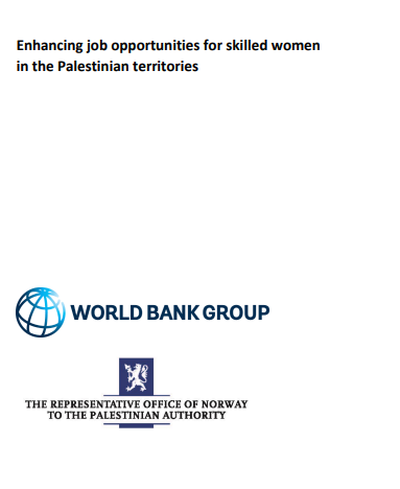
The UNESCO-UNEVOC International Centre: Who We Are | What We Do | Working With Us | Get in Touch
The UNEVOC Network: Learn About the Network | UNEVOC Network Directory
For Members: UNEVOC Centre Dashboard
Thematic Areas: Inclusion and Youth | Digital Transformation | Private Sector Engagement | SDGs and Greening TVET
Our Key Programmes & Projects: BILT: Bridging Innovation and Learning in TVET | Building TVET resilience | TVET Leadership Programme | WYSD: World Youth Skills Day
Past Activities: COVID-19 response | i-hubs project | TVET Global Forums | Virtual Conferences | YEM Knowledge Portal
Our Services & Resources: Publications | TVET Forum | TVET Country Profiles | TVETipedia Glossary | Innovative and Promising Practices | Toolkits for TVET Providers | Entrepreneurial Learning Guide
Events: Major TVET Events | UNEVOC Network News

| Author/s: | Hillis, Samira Ahmed; Alaref, Jumana Jamal Subhi; Takkenberg, Wouter Matthijs; |
| Publisher/s: | World Bank Group |
| Published: | 2018 in Washington D.C., United States of America |
| Licence: | Standard copyright - All rights reserved |
The lack of good job opportunities in the Palestinian territories (West Bank and Gaza) remains a central challenge to achieving inclusive growth, peace, and stability in the region. The unemployment rate in the Palestinian territories (PT) has remained stubbornly high since 2003, reaching 26 percent in 2015 and disproportionally affecting youth (41 percent) and women (39 percent). Meanwhile, there are stark differences in rates between the West Bank (26 percent) and Gaza (41 percent), and job informality has been persistently high, reaching 61 percent of the workforce in 2015. Limited job creation stems from low levels of private sector investment and its concentration in low-productivity sectors with weak potential for growth and job creation. This situation arises mainly from the ongoing conflict between the Palestinian territories and Israel. Volatile economic growth has not brought about employment growth, and the situation is not likely to improve in the medium term without meaningful changes in Israeli restrictions on trade, movement, and access. As noted, private sector investment remains low and far from sufficient to fuel adequate rates of economic growth, job creation, and reductions in unemployment. In addition, employment in productive tradable sectors such as manufacturing has shrunk, while it has expanded in less productive nontradable services, dominated by small informal firms with low potential for growth and job creation. Although the main underlying constraints are the Israeli restrictions on trade, movement, and access, internal constraints also play a role. These constraints include a poor business climate characterized by a lack of competition; costly and nonstreamlined processes for land surveying, dispute resolution, and registration; limited access to finance for small and medium enterprises; and an education and skills training system that does not equip graduates with the skills needed by businesses—that is, there is a skills mismatch.